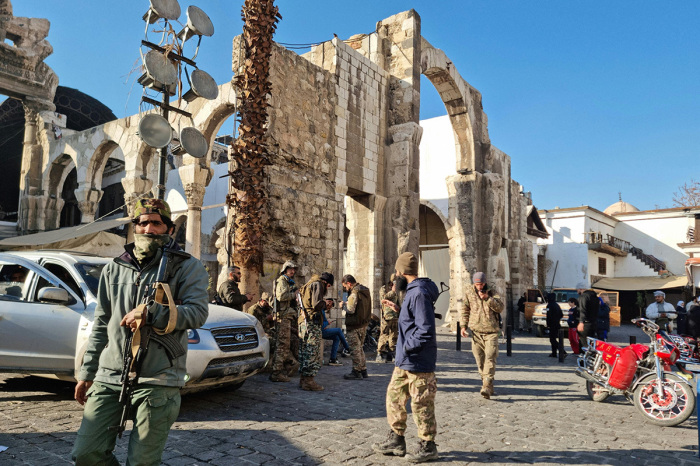- Joined
- Mar 11, 2013
- Messages
- 14,149
- Points
- 113

Leaders of churches and ecclesial communities in Syria met with representatives of the armed Islamic-led rebel groups that seized control of the country amid fears that Christians could face persecution or strict regulations that could disrupt their faith life.
Monday's meeting in Aleppo followed the collapse of the Bashar al-Assad regime's rule earlier this month after Hayat Tahrir al-Sham, a jihadist group linked with Al-Qaeda, seized various cities. The rebels captured Damascus days after the takeover of Aleppo and Hama.
Religious leaders met with the Islamic-led forces at the Franciscan church and convent, which is also the location of the Apostolic Vicariate of the Catholics of the Latin Rite.
An apostolic vicariate is a form of territorial jurisdiction of the Catholic Church in places where a diocese has not yet been established.
"We were all present: bishops, priests and religious," Chaldean Jesuit Bishop Antoine Audo of Alep told Fides in a statement. Reflecting on Monday's summit, Audo described it as a "positive meeting."
The Islamist forces reportedly assured Christian leaders during the meeting that they would not attempt to change or regulate ecclesiastical communities by, for example, implementing rules against boys and girls studying together at school. According to Audo, the new forces claimed they wanted to "build trust by respecting [their] traditions and [their] prayers."
"I told them that we, as Arab Christians, represent a unique reality in history and in the world. I recalled some examples of the history of Muslim Arabs with Christians and the contribution of Christians to this history," Audo said.
"I added that the status of the 'dhimmi' (non-Muslim members of a state guided by Islamic law, ed.) can be interpreted both negatively and positively, that Christians cannot be second-class citizens and that we must work together," the bishop continued. "They seemed very interested in these considerations."
Despite these assurances, however, watchdog groups have expressed concerns about the potential dangers Christians in the region could now face.
David Curry, CEO of Global Christian Relief, shared that the group has maintained a network on the ground in Syria for the last two years. In an interview with The Christian Post, Curry revealed that the Islamic rebel forces stole humanitarian aid that GCR had delivered to churches in the area weeks before the takeover.
"We've continuously been delivering aid the last two years, but the stock that we have now, some of it has been captured by these rebels," the GCR CEO said. "There's still some that remains; we're going to distribute that as cautiously as we possibly can to people who are now on the run, but the reality is this is a very dangerous area right now for Christians."
The advocate also highlighted Aleppo's declining Christian population, the result of fewer believers feeling safe in a place that historically has always been the "center for Christian faith in Syria." Curry predicted that this trend would only continue, especially now that HTS-led rebels have taken over.
"Considered a terrorist organization, they have, in less than two weeks, ethnically cleansed the northwest of Syria — including Aleppo and beyond — of Kurds and Christians," Curry said. "Despite public protestations to the contrary, we can expect them to extend their campaign to the rest of the country."
Curry said that when the civil war in Syria began more than a decade ago, Christians constituted approximately 10% of the population, which was about 1.5 million people.
After years of constant fighting and persecution perpetuated by jihadist radicals, however, that number has dwindled to just 300,000.
In addition to the report of the rebels stealing food, other reports have emerged of bread shortages and a lack of drinking water following the seizing of Aleppo. While many Christians have fled, those who remain are now subjected to curfews imposed by the rebel forces. These restrictions have left many Christians feeling vulnerable.
Jeff King, president of International Christian Concern, told CP in a statement earlier this month that the next few days and weeks "will be crucial for the fate of [the] Christian community."
